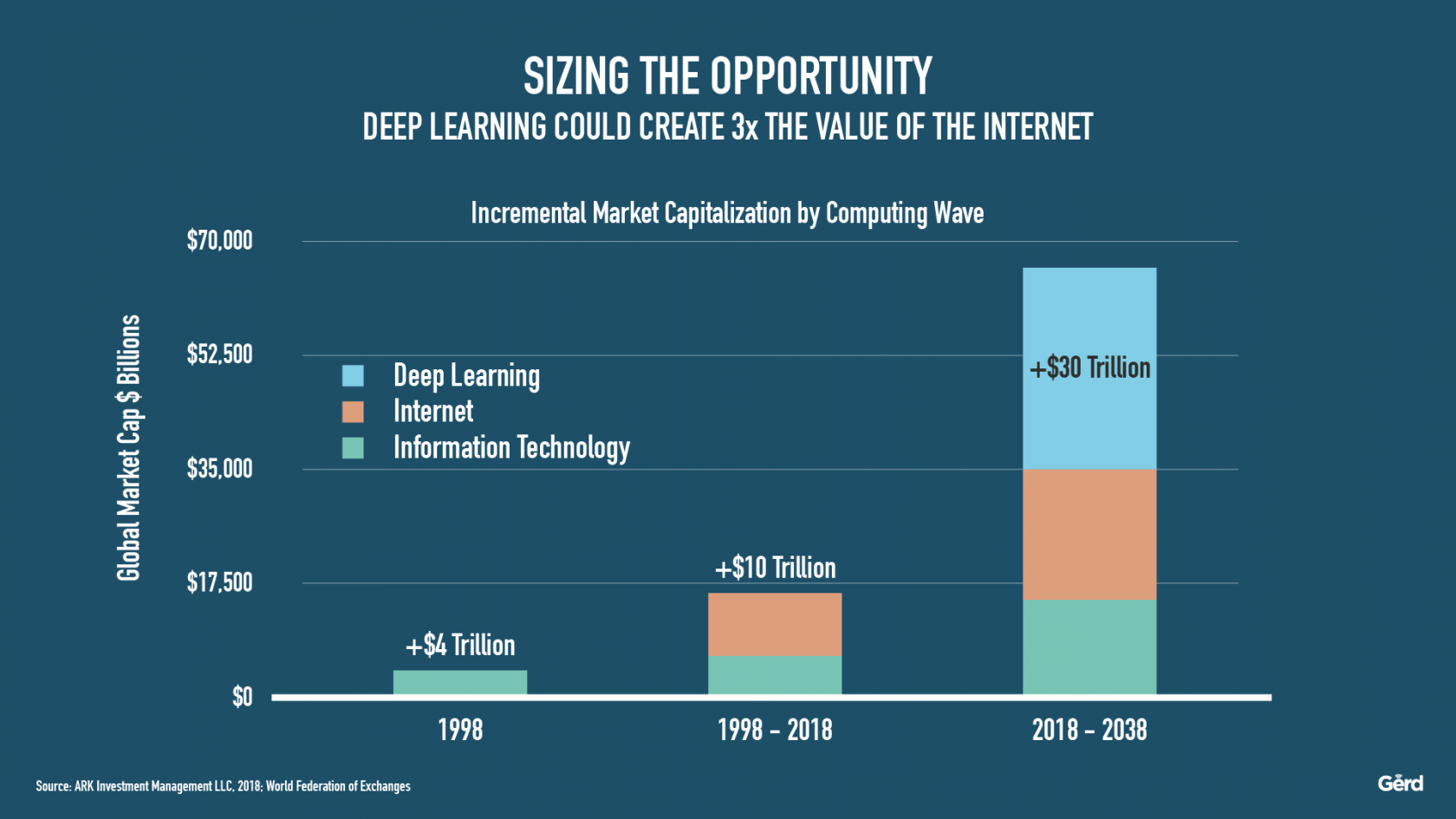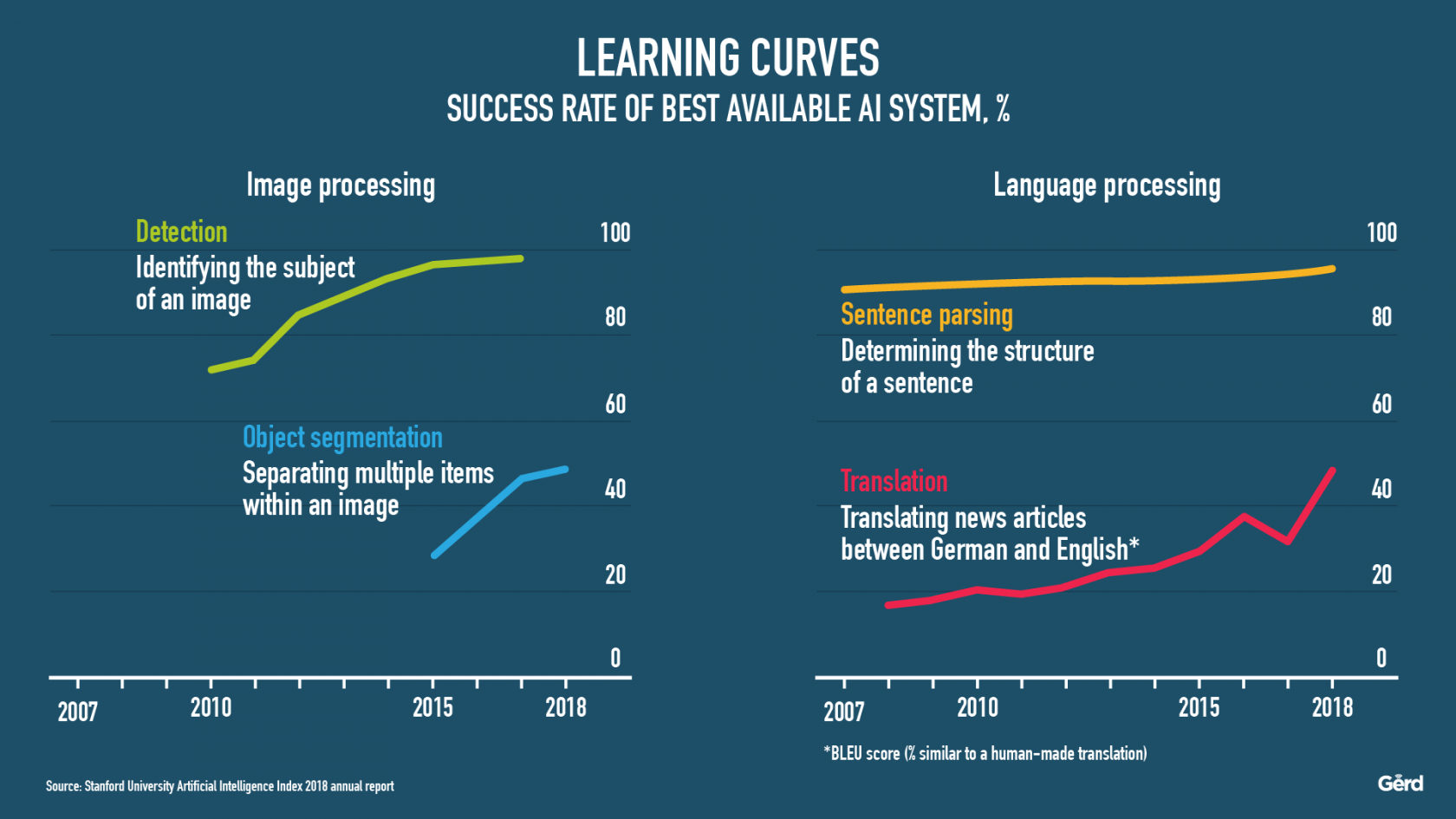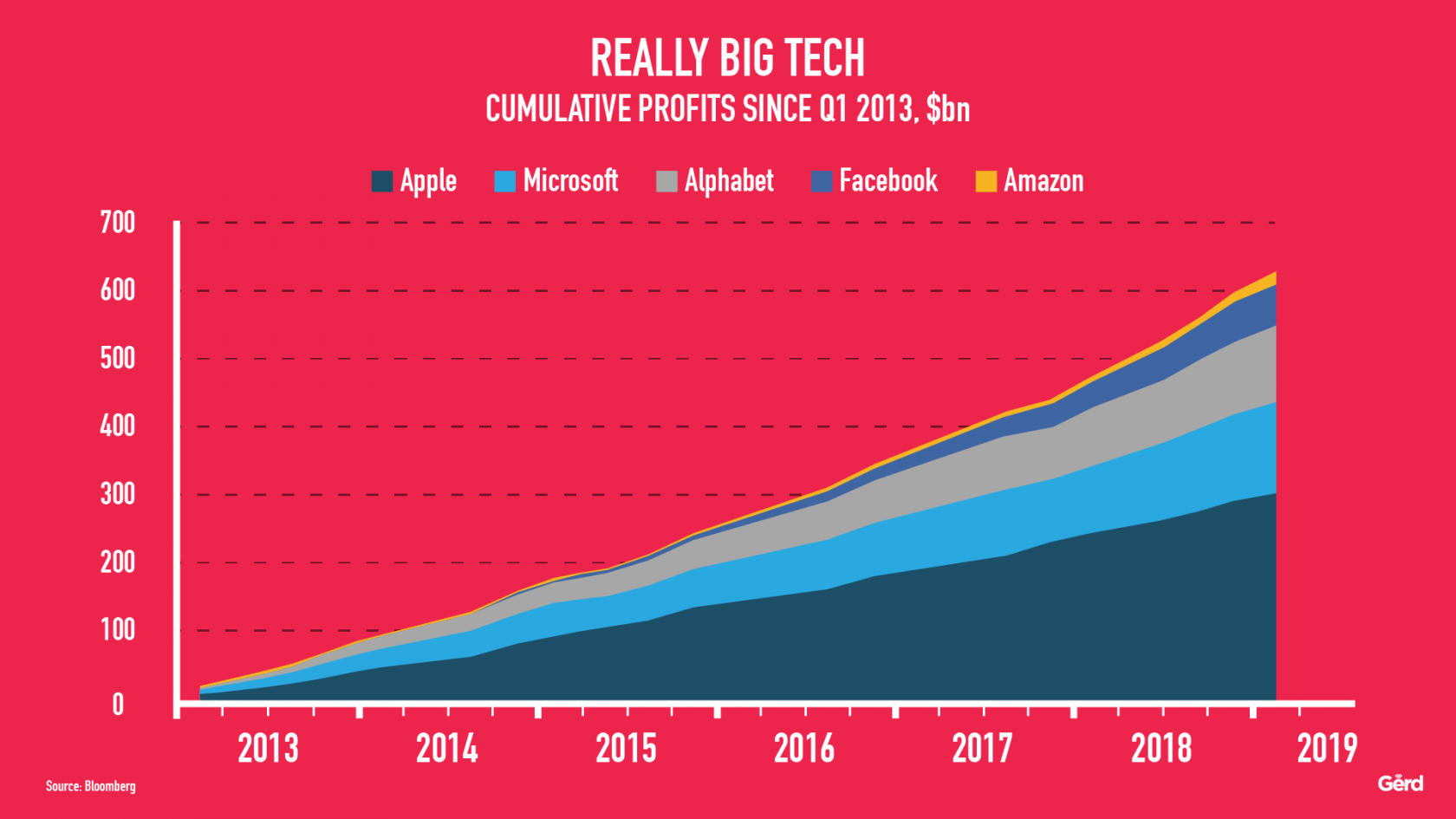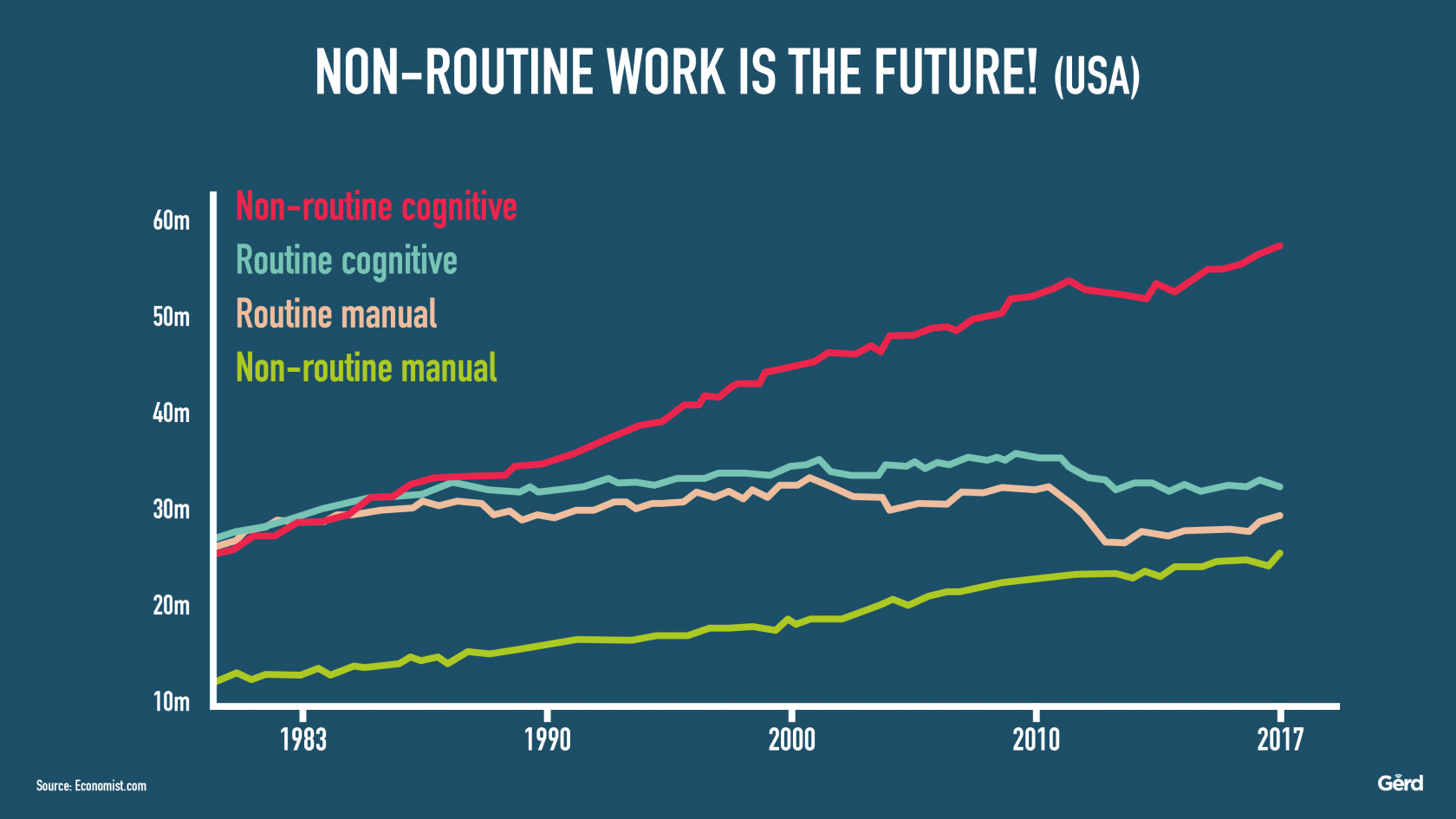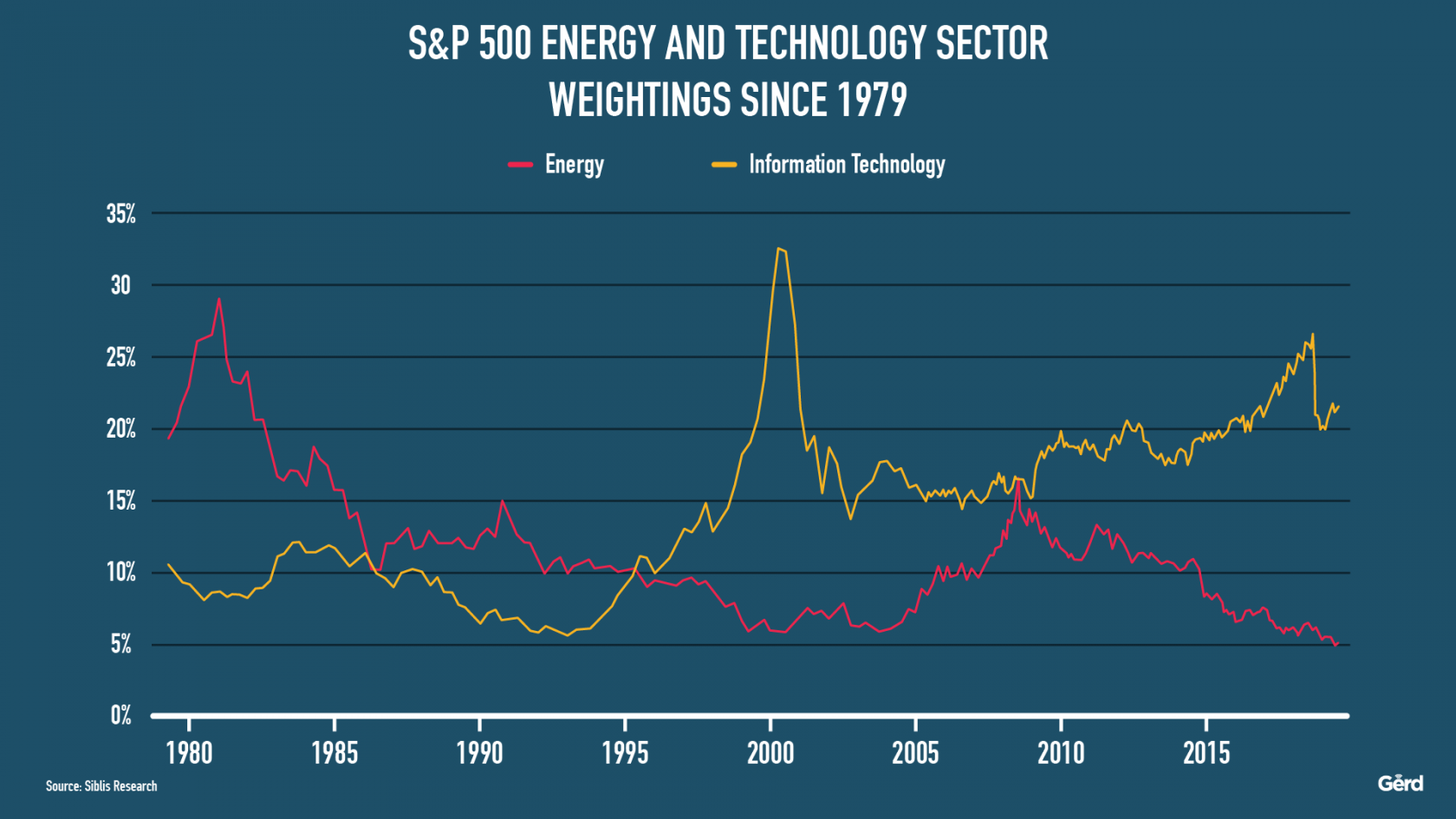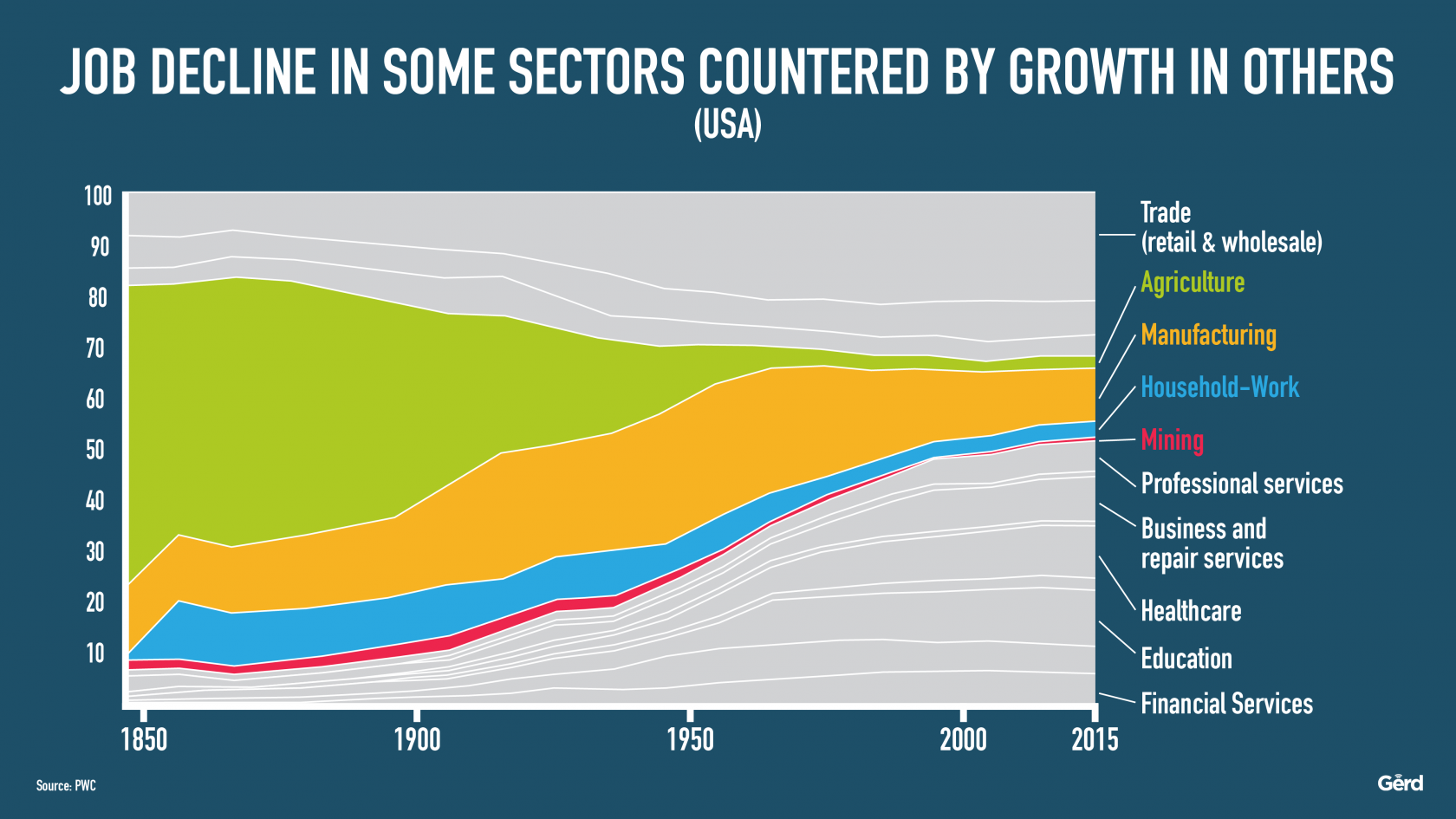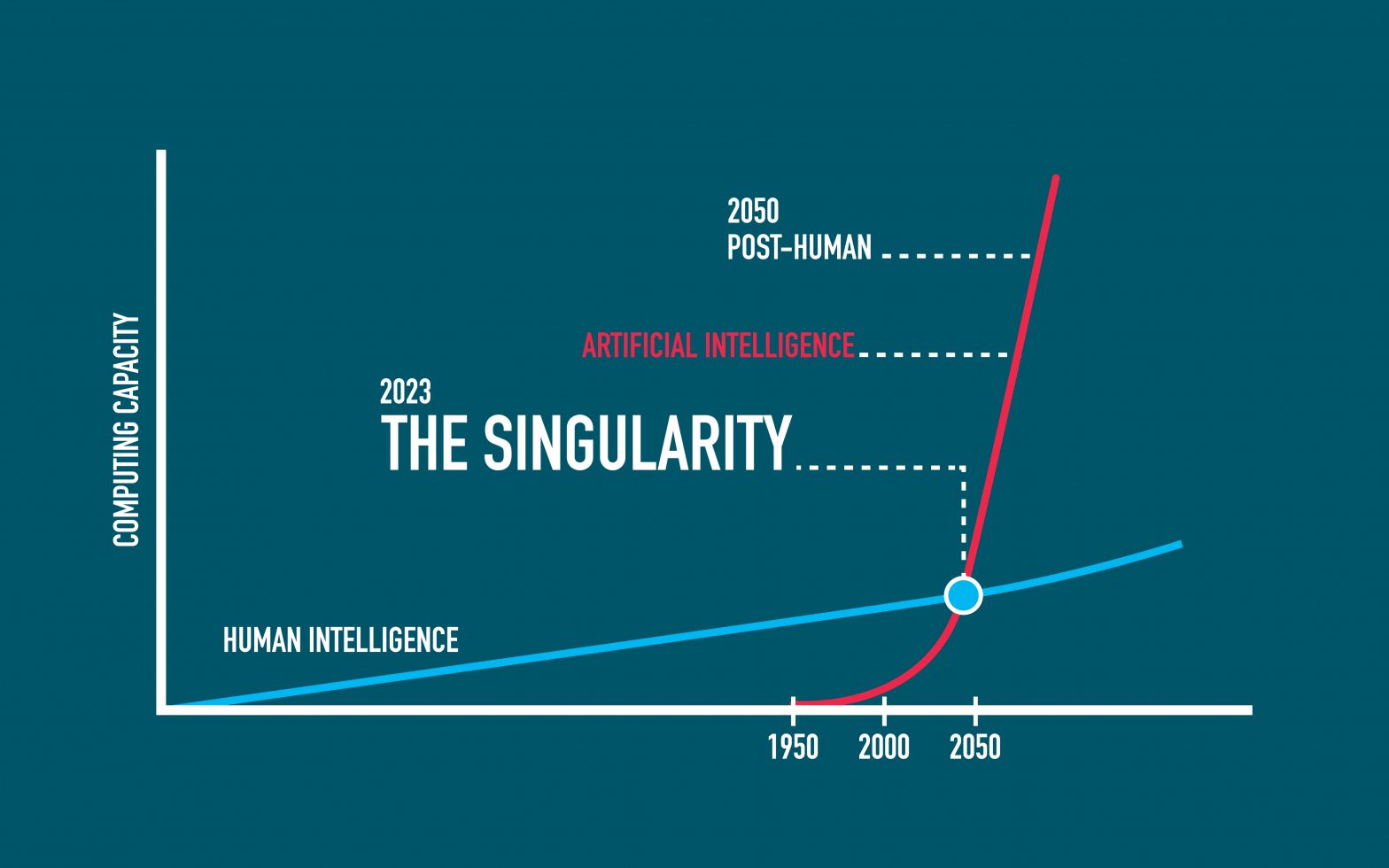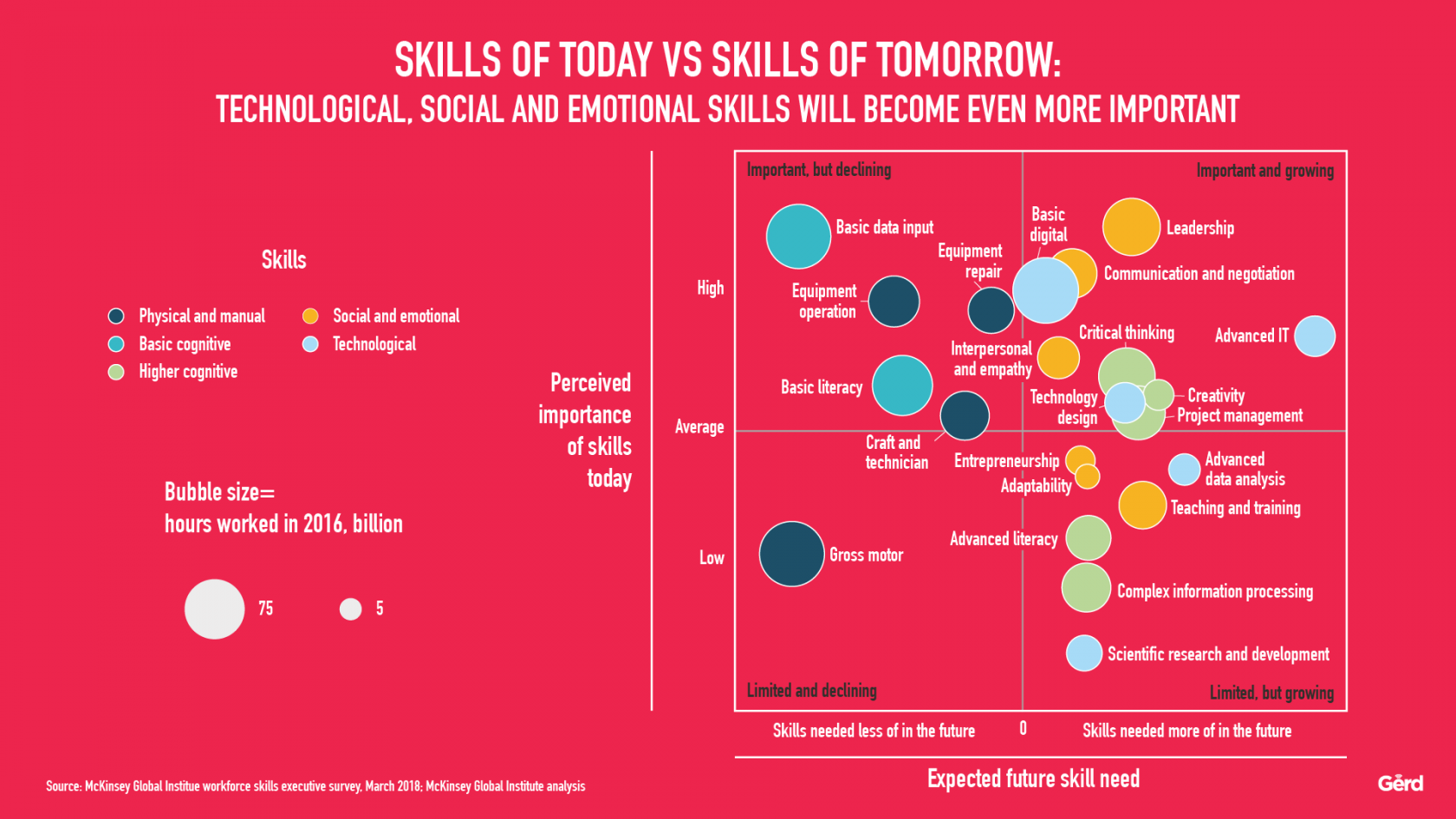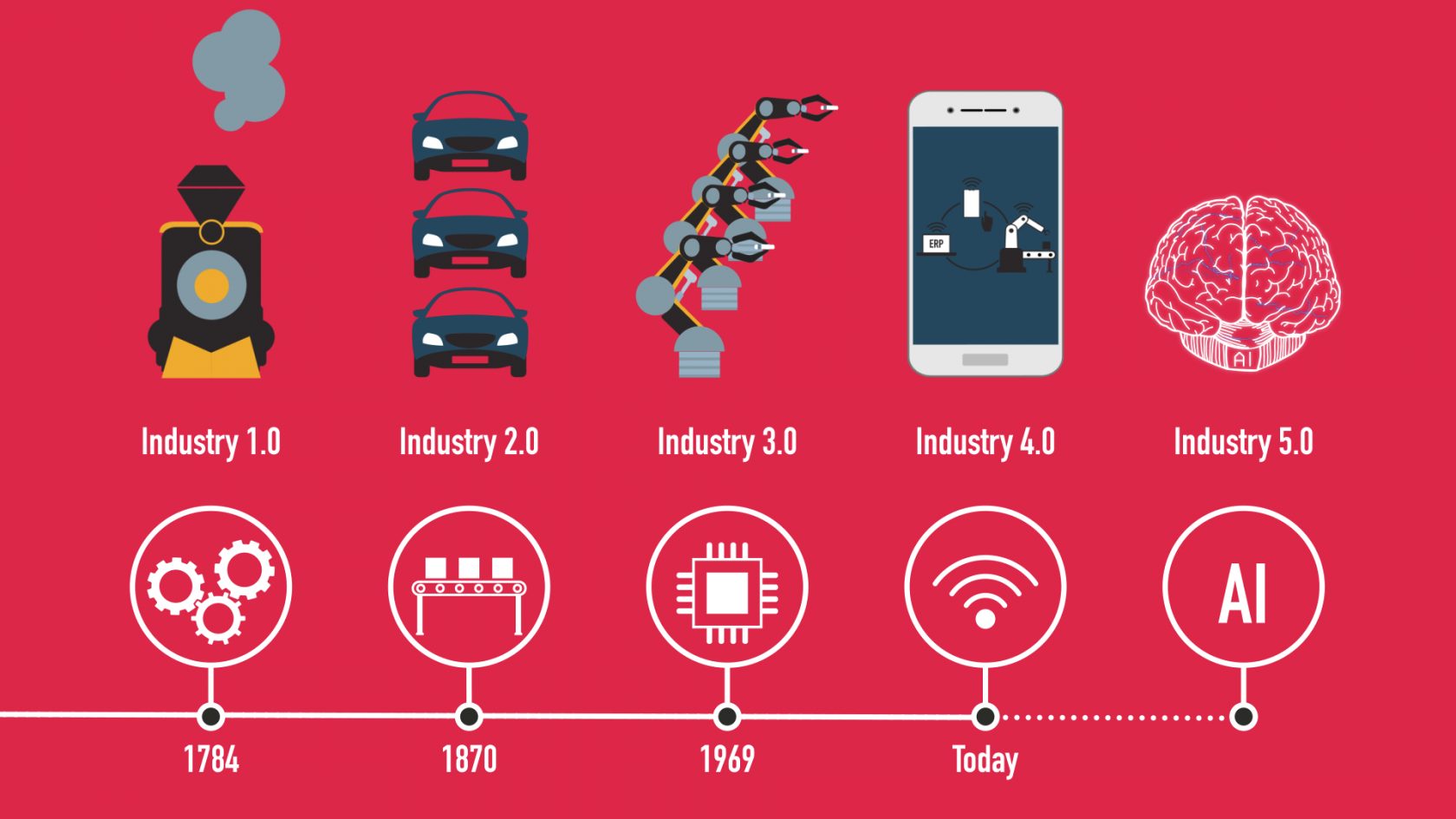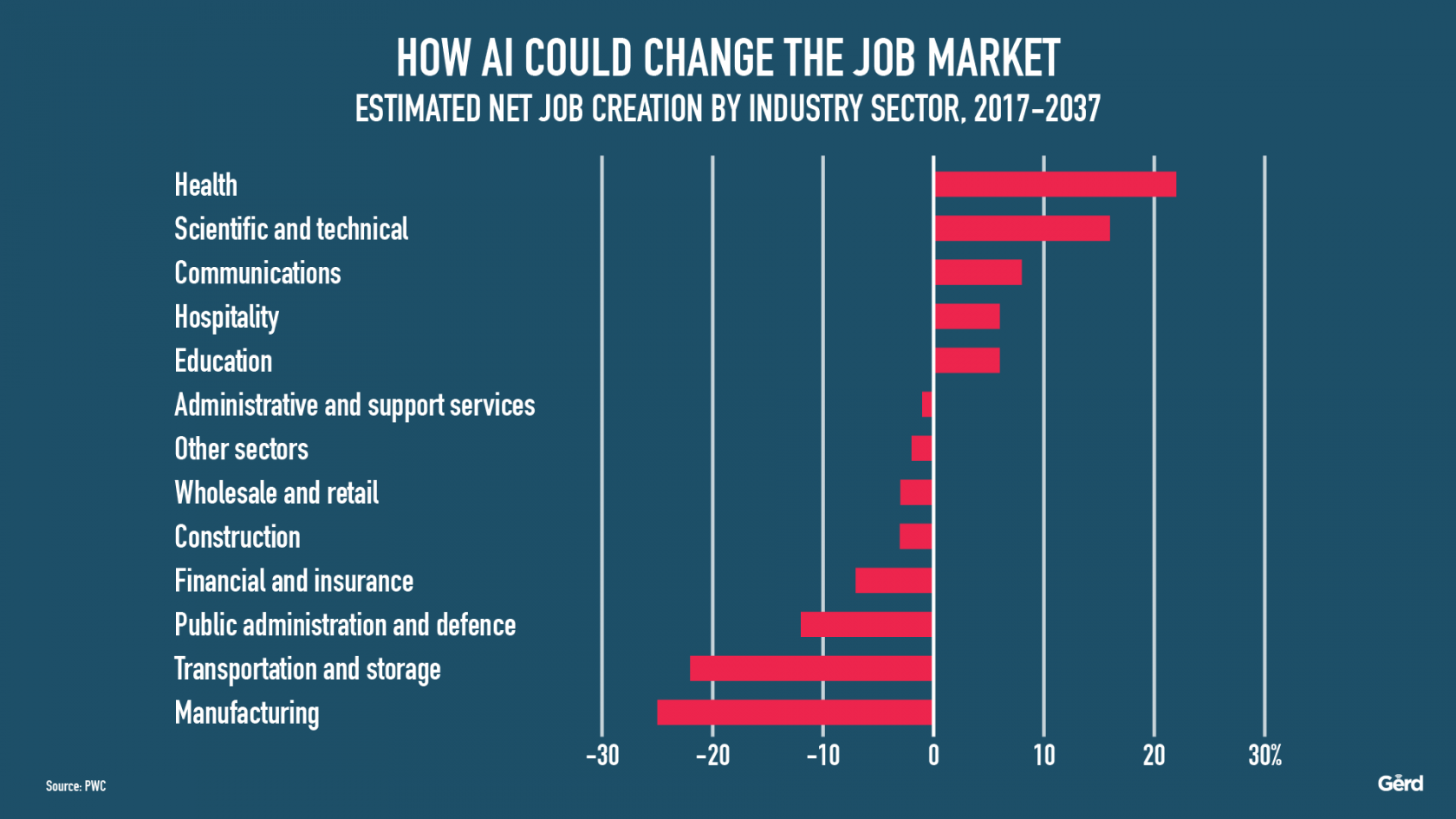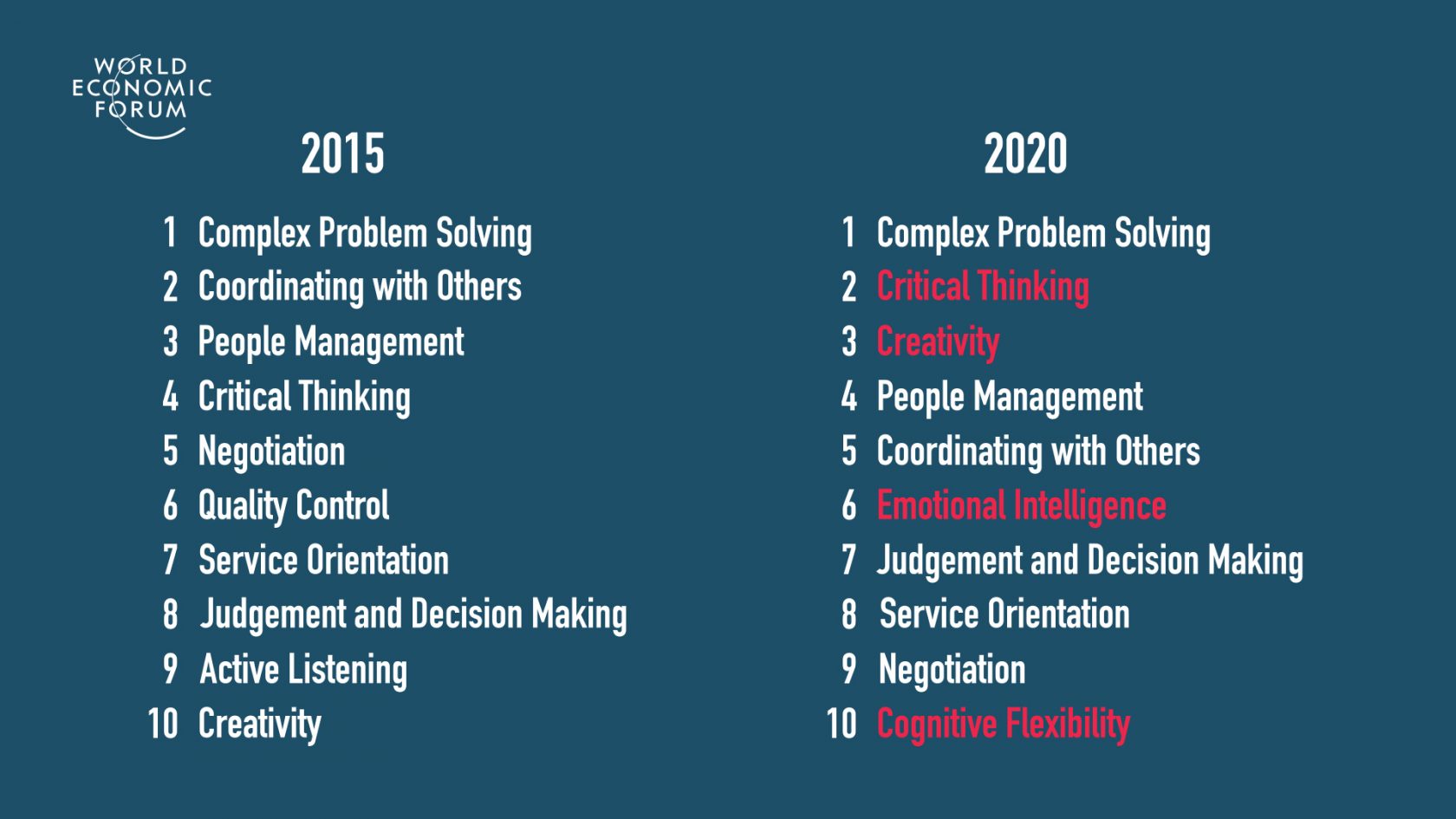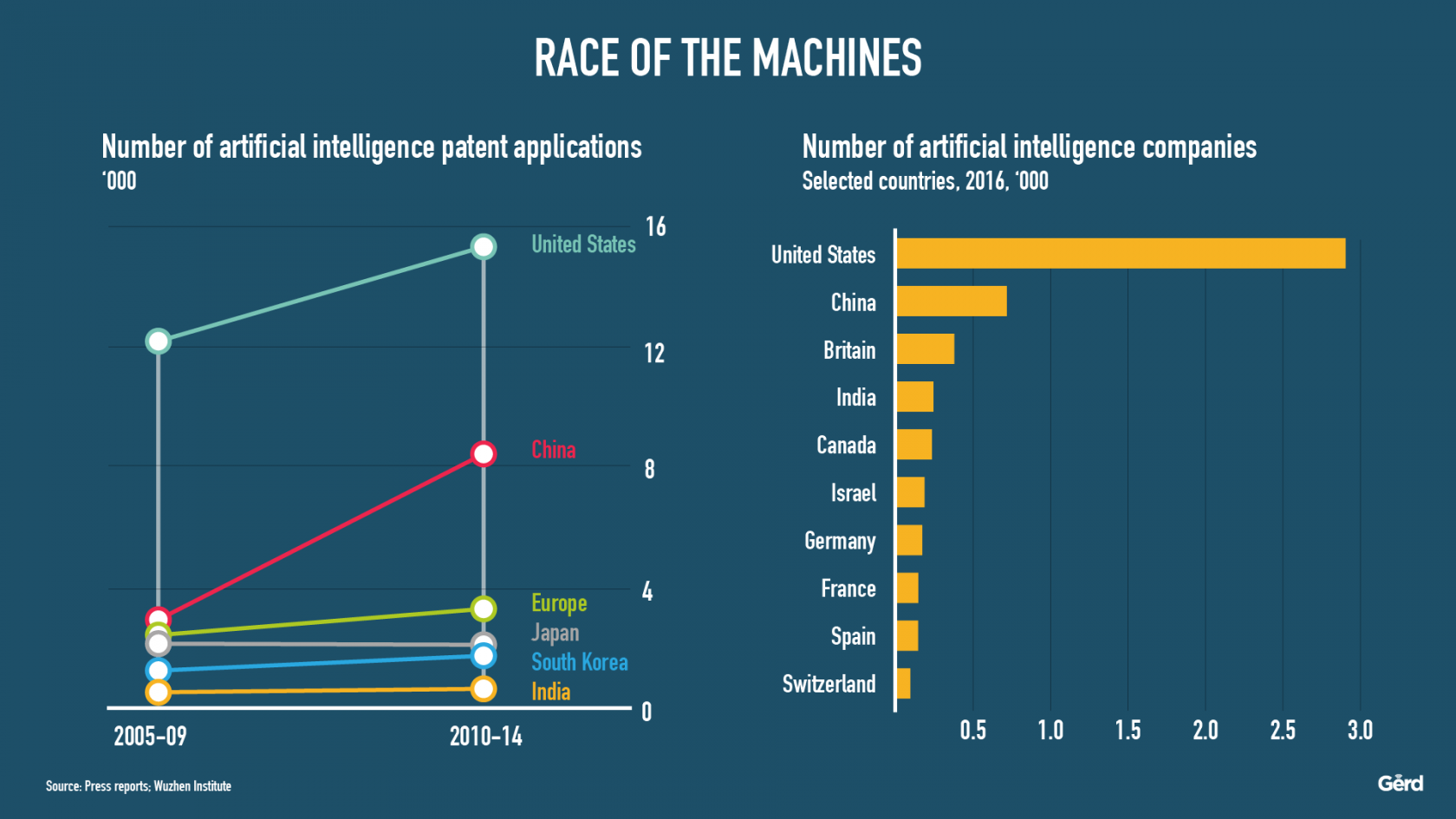
Are you also experiencing a kind of Future Shock when thinking about where your job might be going, or when at looking at the best choices for your kids’ education?
No doubt you keep hearing that over 50% of all our jobs will be automated away, and that ‘artificial intelligence’ (AI) – powered robots and smart machines will make vastly superior workers. Whether you’re a truck driver, a callcenter agent, an accountant, a book-keeper or even a lawyer or a doctor, it seems like there is no escape from the fact that automation is dramatically reducing the need for humans to handle routine tasks – I call this trend ‘The end of Routine‘.
As human intelligence (HI) encounters AI, will humans really become useless? Will all this progress be heaven (working only four hours per day, four days a week, but for the same money), or will it be hell (50% unemployment, rampant inequality and global civil unrest)? Or will it be both i.e. a kind of #hellven? Let's have a look!
This article accompanies today's release of my new film “How the Future Works”. First, I’ll show what’s happening right now, and why I think it’s urgent to ponder the future of work, jobs, education and training. Then I’ll talk about what we, personally, can do: and lastly I’ll lay out what governments and societies need to do to ensure that our future will be mostly heaven.
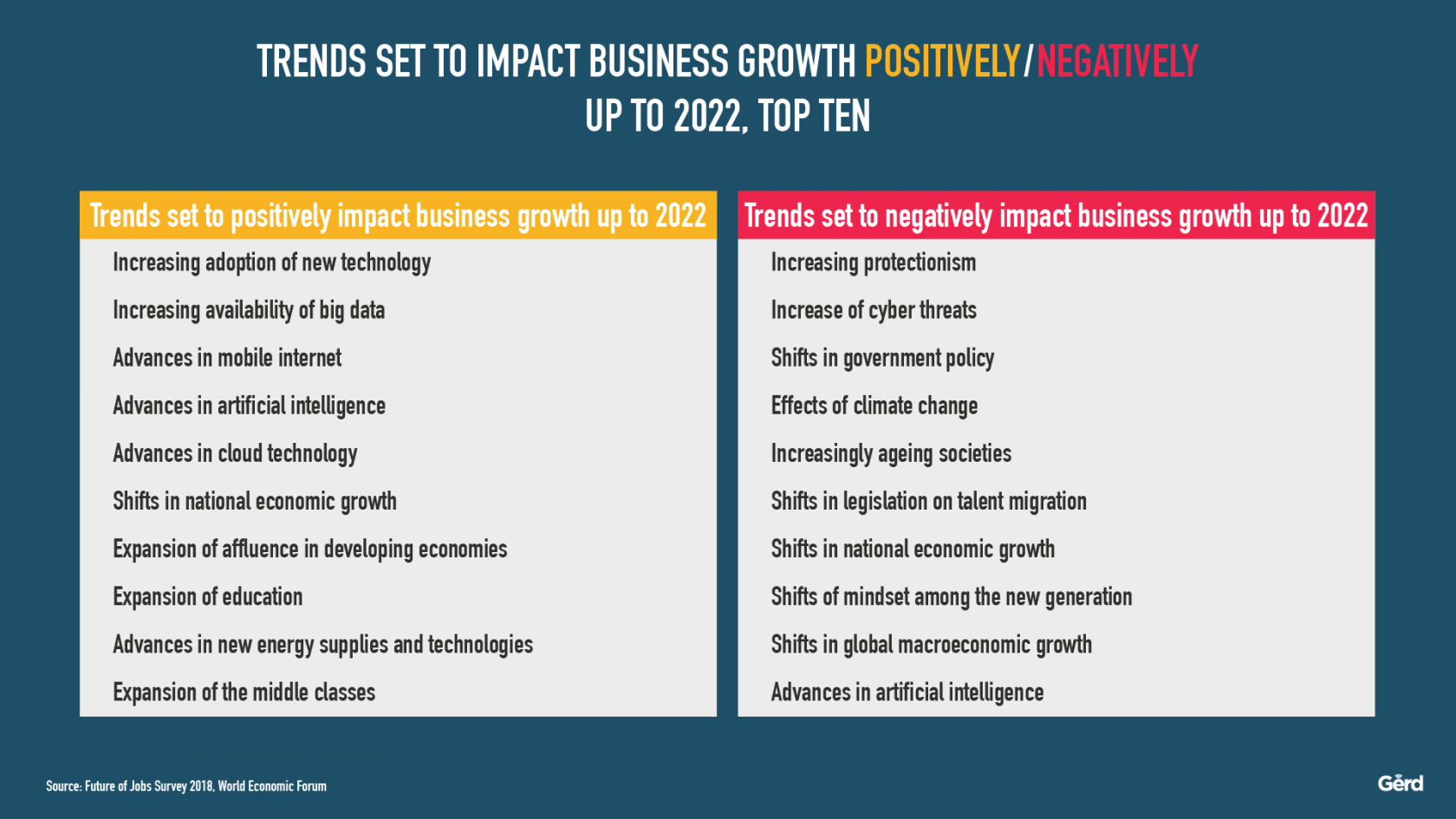
One thing is certain: pretty much everything we know and assume about work, jobs, training and education, today, is being challenged by exponential scientific and technological progress.
The Game-Changers
First, these nine game-changers are impacting everything: big data, cloud computing, the Internet of Things (aka the Internet of Everything), artificial intelligence (watch my 2019 short film on AI for a quick summary on this topic), quantum computing, the blockchain, 3D printing and advances in material sciences, augmented and virtual reality, and genome engineering.
Robots and other machines, computers and digital assistants are becoming capable of hearing, seeing, speaking and learning (thinking…?) – and they’re getting better at it, all the time. I expect that by 2030, most of the current technological limitations will be left behind and we will quickly be propelled towards a future where technology is almost infinitely capable. Right now, deep learning and neural networking is where most of this rapid ‘machine thinking' – progress is happening – and we ain’t seen nothing yet (as the song goes)
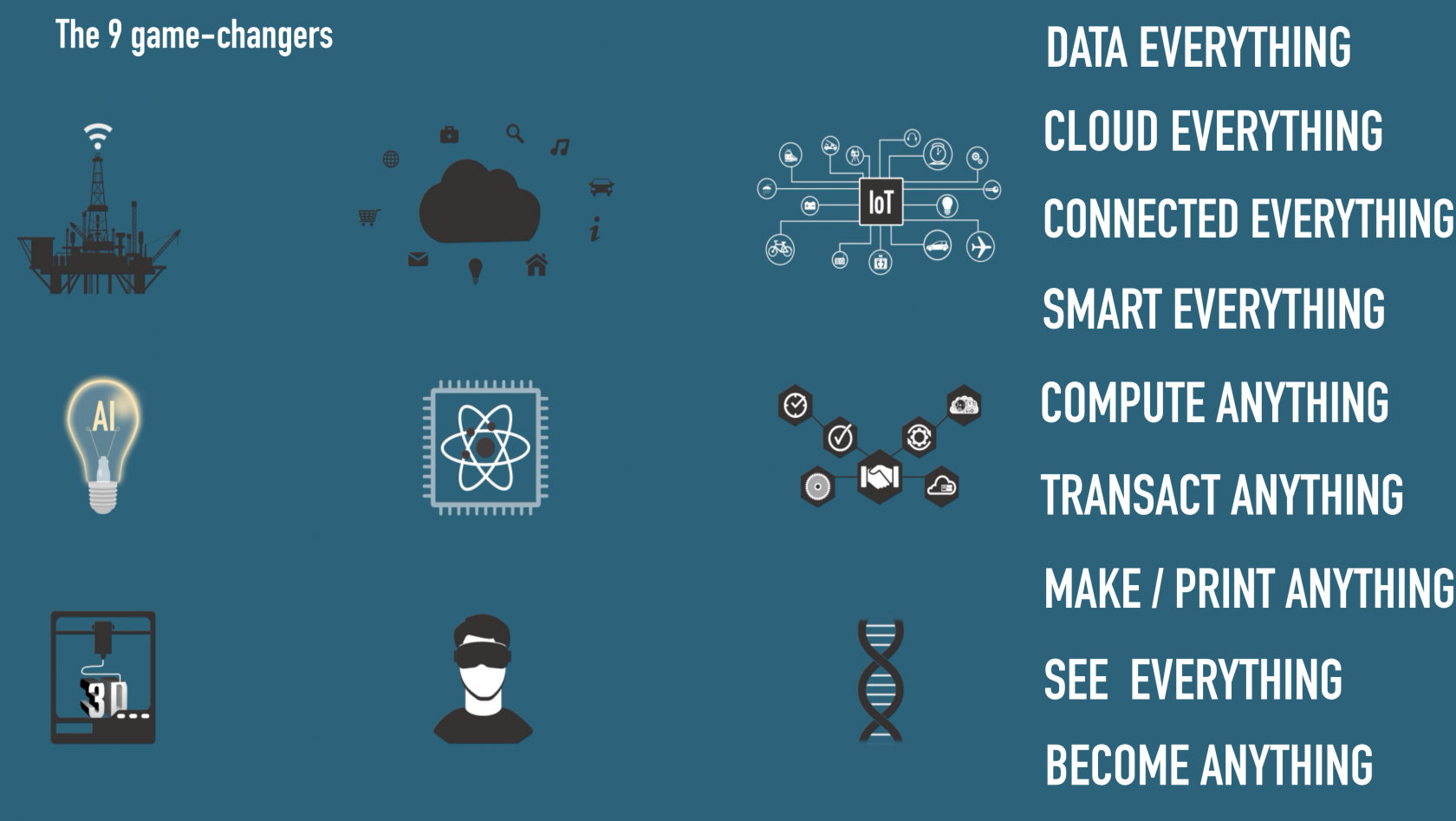
The Megashifts
If this isn’t enough to boggle your mind, let’s have a quick look at the consequences of these game-changers, what I called ‘The Megashifts’ in my book Technology vs Humanity, and imagine how they will affect the future of work (be sure to read the 3rd chapter in my book, provided as free PDF via the link above, or watch this video):
Digitisation and Datafication: literally everything around us is being connected, and many processes that used to be offline (such as a doctor taking notes about his/her patient) have are now been digitised which means that a lot more data about routine tasks is becoming available, allowing machines to ‘understand' them better, and to learn much faster, and ultimately to develop their own ways of responding.
Cognification: deep learning (a subsection of AI, based on neural networking concepts) is enabling machines to learn by themselves rather than having to be programmed – will we soon have machines that have their own kind of ‘machine knowledge'?
Virtualization: the physical world is rapidly becoming virtual, or is being duplicated in it (see the concept of digital twins); and many of us will increasingly work virtually i.e. ‘in the cloud', as well!
Automation and Robotisation: these 2 trends will have vastly more impact than globalisation because they bring about ‘the End of Routine' – whatever can be digitised and automated, will be!
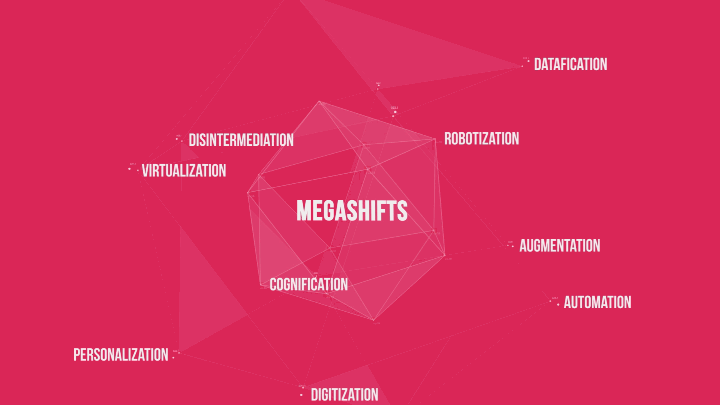
So: how much of your work is more or less routine? Those countless little things you do kind of automatically: finding stuff, organizing, counting, filing, searching, checking, updating, tracking and monitoring? The things you'd consider chores? The things that you already know machines will soon be able to do?
How much of your work requires uniquely human skills and character traits such as compassion, intuition, understanding, creativity, imagination, foresight, social or emotional intelligence. I call these the Androrithms – the opposite of algorithms. Machines and algorithms will soon learn almost any routine that does not involve unique human capabilities – anything that is binary (yes/no, if-this-then-that) and that simply needs deeper data, more processing power or better algorithms, will be done by them in the near future, at a fraction of the cost, time and effort.
All of this amounts to a seismic shift in how we must think about ‘WORK' and ‘JOBS'. Once again: Whatever can be digitized, automated and robotized, will be (*be sure to read Stuart Russell's new book ‘Human Compatible‘ for more on AI vs HI)
Computers will become infinitely better at turning data and information into ‘knowledge’ (we call that ‘AI' but it’s really just IA intelligent assistance), for the foreseeable future. Clearly, ‘working like a robot' has no future, and learning like a robot (as we still do in too many schools and colleges today) is a guarantee for future unemployment.
Automation via AI: Some redeeming factors
Very few jobs are entirely routine. In real-life, most complex situations that are easily handled by human are currently still beyond any significant level of automation by machines and so-called AI. Dealing with unforeseen events, altered contexts and human ambiguities, or responding to new challenges that require even the most basic ethical or value-based decisions is still far beyond machine intelligence. This realisation is applicable to a good many jobs that often labeled as ‘total routine’ such as driving a truck, doing simple accounting or working in a callcenter.
Algorithms may out-perform humans only when it is not about understanding emotions, intentions, interpretations, deep language skills, consciousness, self-awareness and other uniquely human traits (*hat tip to Oxford AI's Luciano Floridi). I think that for at least the next 25-30 years (until we reach what has been termed ‘the Singularity‘) there will still be plenty of work that requires humans, even as most routines become digitized, automated and virtualized. Who knows, we might even get paid more yet work less:)
As we automate more and more routines, we will inadvertently create new human-only jobs. Some researchers have famously argued that 70% of all new jobs in 2030 haven’t even been invented yet (*read the XERO Business Rewired report to which I contributed just a few weeks ago, here) As an example, many observers feared that the rise of social media platforms would reduce the number of traditional media professionals. Indeed it has, but at the same time we now have an estimated 21 million people working in social media, worldwide (even though many of these are freelancers and ‘gigs', of course). Clearly, the challenge is not that there won't be many new human-only tasks but to be ready, to remain agile and to keep on up-skilling. Life-long learning is our future!
As many routines are automated, costs will decline. The expenses now associated with basic services like finance, healthcare, and mobility (and even food or energy) are bound to decline because of technology, just like technological change has dramatically reduced the cost of media and content such as music, books and movies. This will be a benefit for every consumer because it reduces the need for more paid work in order to boost our spending capacity. Ideally, because of exponential technological progress, we may end up having much lower costs-of-living while the ‘human-only’ tasks are paid much better – but how exactly this will play out is all a question of wise governance, no doubt!
How to respond, on a personal level?
Embrace your future-shock: The future is better than we’re usually told on TV and in the movies! Humans are actually quite good at adapting once we face up to what’s happening (usually that means experiencing either pain or love) – we ‘just' need to become a lot more proactive, and develop our foresight skills.
Get comfortable with being uncomfortable because VUCA (volatility, uncertainty, complexity and ambiguity) is the new normal. Challenge your assumptions about what think you can or can't do; then, discover what lies beyond the work you do today. Remember: If you’re not confused you’re probably not thinking about the future enough!
Observe and understand. Dedicate more time to thinking about what might be, tomorrow, rather than what is, today. The more we understand (i.e. not merely know) about what’s pretty certain to happen, the better we can choose our responses. If you don’t understand the future, you probably won’t have one!
Start asking WHAT IF? What could you do differently, if…? If this really happens, what will your job look like in five years? And what about your business? “Imagination is more important than knowledge” said Albert Einstein (What Life Means to Einstein, 1929)
Unlearn and relearn: If machines can indeed ‘learn’ and acquire some kind of ‘knowledge’ (however mechanical it may remain), and can therefore handle some of your tasks, what else could you be doing with your time? What skills will you need to move up the food-chain towards human-only jobs? (one of the answers: more EQ)
Become more human, not less. The key is to not compete with machines on the what they do best (i.e. processing and logic); but to boost those human-only traits that set us apart: creativity, imagination, empathy, intuition and emotional intelligence (yes, the androrithms). The more of a Mensch you are the more you’ll thrive in the future! To paraphrase the roboticist and fellow futurist Hans Moravec: “whatever is easy for a computer is hard for humans, and vice versa”. I believe this will remain true for at least the next 20-30 years, and it’s also why the end of routine is not the end of work.
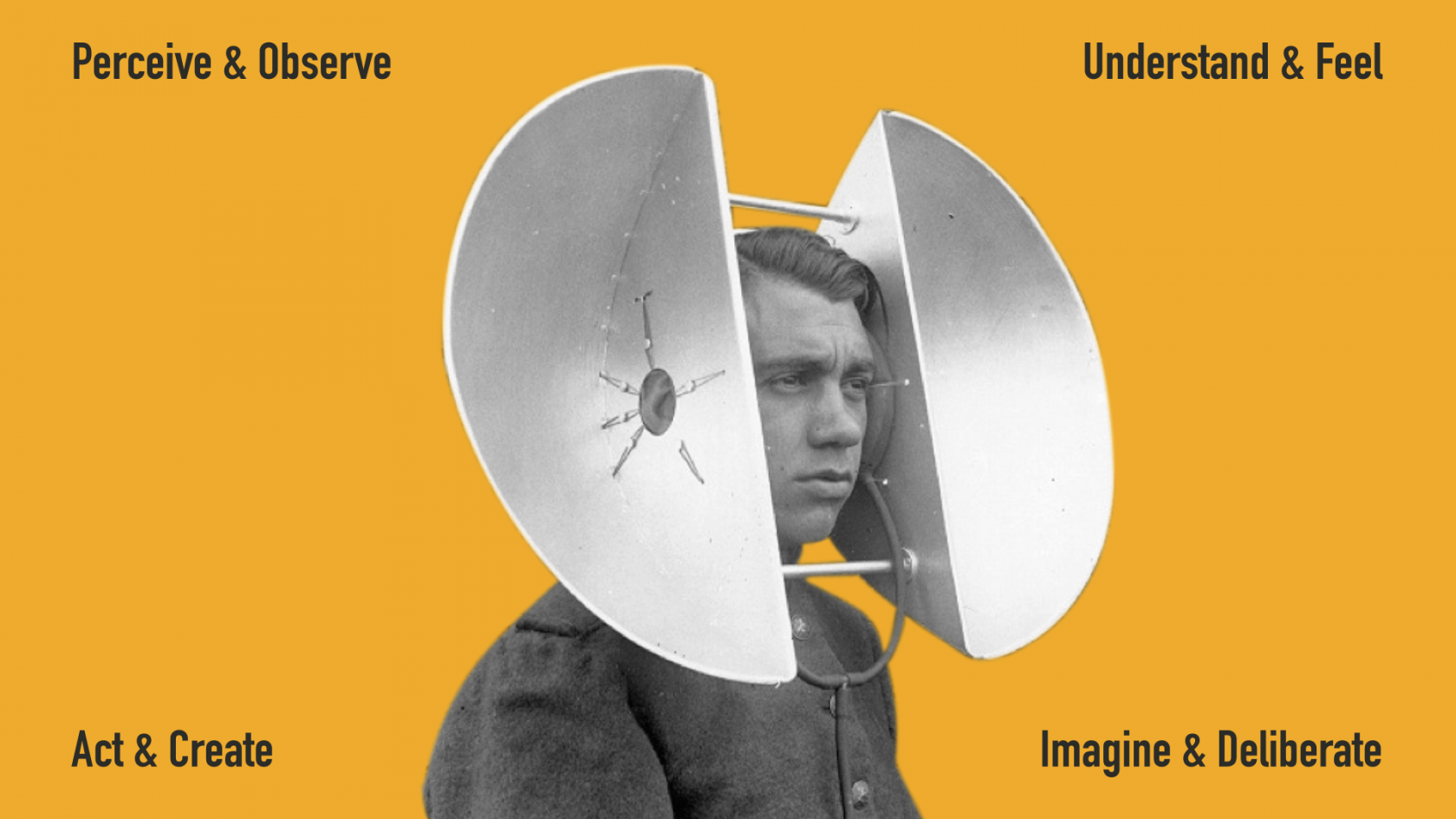
Wise governance needed!
I believe it is one of the key roles of government to balance scientific progress, technological advances and the need for economic growth with the overall needs of humans i.e. the people and the citizens. I think that if we want these tremendous technological changes outlined above (and of course in my book 😉 to result in collective human flourishing, we need wise governance, and we need to know that our leaders are capable of understanding the future. This is why I have proposed that every public official should be required to obtain a ‘driver’s license for the future’
Governments must strive to increase future-readiness, and learn how to become proactive rather than reactive. Public officials need to be much faster at grasping what exponential change means for our society – linear thinking and acting based on hindsight will be detrimental. Public officials must become thought-leaders, and not leave ‘the future' to big tech.
Governments must get much better at distributing the benefits of digitization, automation and robotization, and enact policies that ensure that wide-spread machine / AI labour will indeed result in human benefits – regardless of income or class. Because of technology, productivity will continue to increase and corporate profit margins will shoot up, yet in many countries, increasingly fewer people will be employed at good wages. Governments must now look at suitable ways to equalize the benefits of technology so that the rising tide will indeed float all boats.
Governments must support retraining and up-skilling of those workers that currently have mostly ‘commodity and routine' jobs which are certain to be automated-away in the near future. Governments need to start moving people out of those jobs (such as callcenter agents and admin workers) and up the food-chain towards more human-specific tasks. This is especially pertinent in countries where routine labour is still cheap, today, such as in Brazil, India, China and Indonesia.
Governments must re-humanize education. Many standard technology and engineering tasks (such as simple coding, app programming, basic telecom network maintenance etc) will soon no longer be done by humans. Within a decade, anyone with just average STEM skills will be pitched against the very technology they have built, and the only thing that will set humans apart from smart machines will be our human-only skills, traits and talents. It is the art of being human that we need to teach our kids, and this is what we need to pursue in universities and colleges. Instead of more MBAs with rapidly outmoding skills maybe we should have more MFS’s – Master of Human Futures. Bring back art and music, philosophy and ethics, literature, anthropology, psychology, sports — the humanities!
Governments need to rethink capitalism. Back in 1968, U.S. Senator Robert F. Kennedy said: “GNP (gross national product) measures everything except for what makes life worth living”. 52 years later it is even more obvious that an economic logic solely based on growth and profit is utterly unfit for the future, as technology creates abundance in every sector of our lives, and as our planet is facing a climate emergency. We must therefore think beyond what propelled the industrial society, towards what has been dubbed ‘sustainable capitalism’ by Al Gore and many others. Imagine if we could expand how we measure success, towards 4 key objectives: People, Planet, Purpose and Prosperity. Here is an opportunity to create a totally new stock market where companies that adhere to these four objectives would list their stock! I believe that further technological progress will enable – and enforce – this new economic logic within the next 20 years.
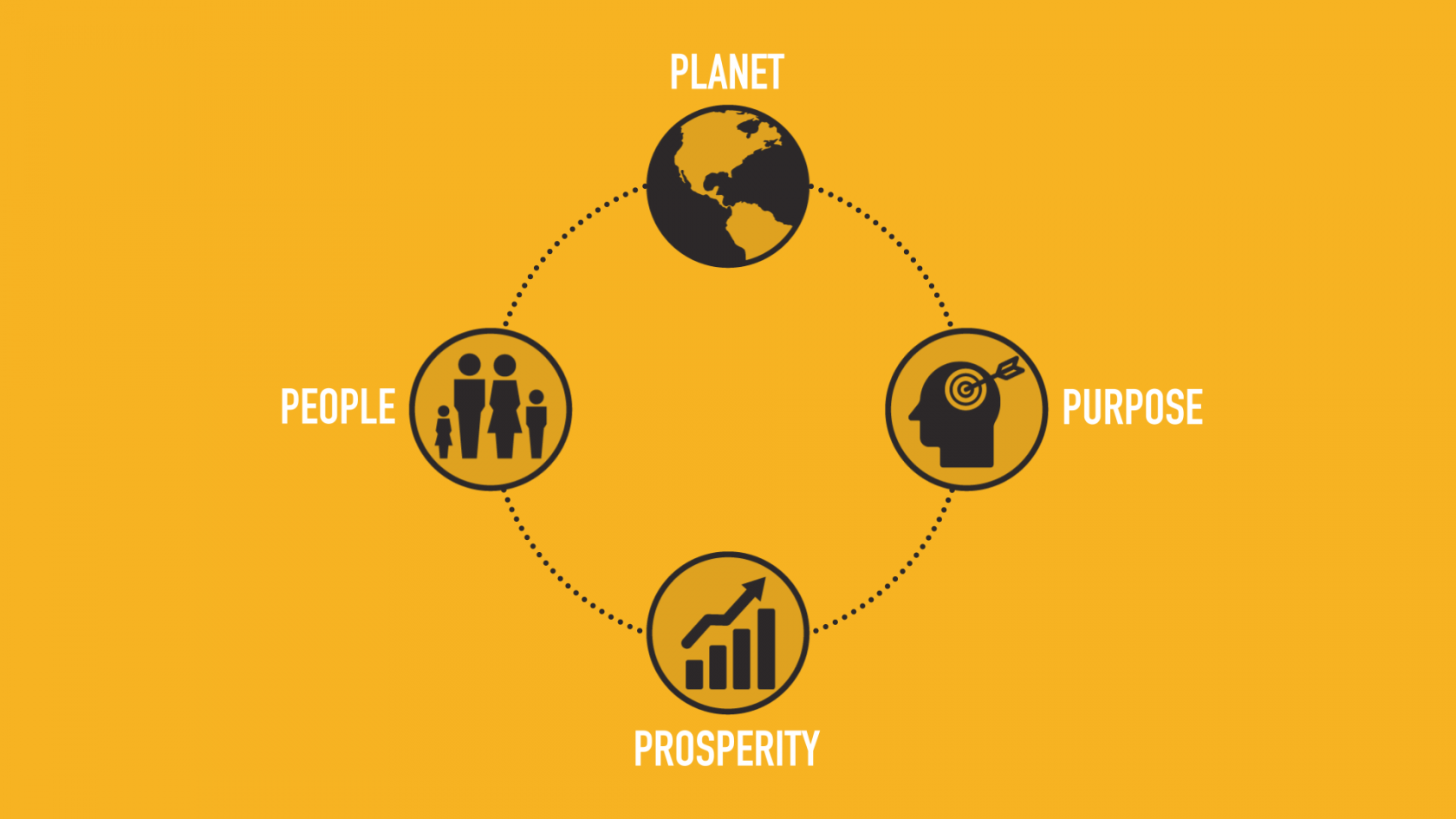
My bottom line: while work as we know it today will end, humans will be more useful than ever before!
Now, watch my new film “How the Future Works”
